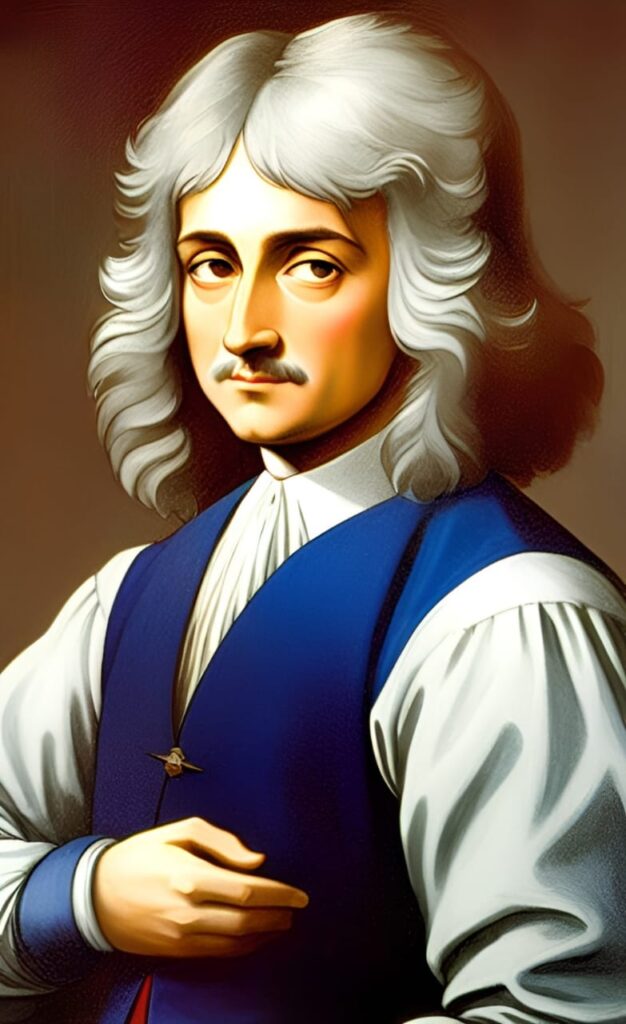Isaac Newton was an English mathematician, physicist, and astronomer, widely regarded as one of the most influential scientists in history. Born in 1642, Newton’s groundbreaking work in the 17th century changed the way we understand the universe, from the laws of motion to the nature of light. This article will explore the life, work, and legacy of Isaac Newton, a true genius of science.
Early Life and Education
Isaac Newton was brought into this world on January 4, 1643, in Woolsthorpe, Lincolnshire, England. He was born to a prosperous farmer who had passed away three months prior to his arrival. Newton initially received his education at the King’s School located in Grantham, Lincolnshire, where his remarkable aptitude in mathematics was acknowledged.
Newton’s Laws of Motion
The laws formulated by Newton concerning motion are the basis of classical mechanics and were fundamental in paving the way for the Industrial Revolution. The primary law, also referred to as the law of inertia, states that an object at rest will remain at rest unless acted upon by an external force. The second law establishes that the acceleration of an object is proportionate to the force applied to it. Lastly, the third law affirms that every action has an equal and opposite reaction.
Contributions to Optics
In addition to his work on motion, Newton made significant contributions to optics. He showed that white light is made up of different colors and developed the theory of color. He also constructed the first reflecting telescope, which used mirrors instead of lenses to focus light, resulting in a sharper and clearer image.
Gravity and the Law of Universal Gravitation
Perhaps Newton’s most famous discovery is his law of universal gravitation. He realized that the force that makes objects fall to the ground is the same force that keeps the moon in orbit around the Earth. He described this force mathematically and showed that it decreases with the square of the distance between two objects. This discovery revolutionized our understanding of the universe, allowing us to predict the motion of the planets and stars.
Legacy and Impact
Isaac Newton’s work had a profound impact on science and paved the way for modern physics. He is widely regarded as one of the most influential scientists in history, and his laws of motion and universal gravitation are still taught in classrooms around the world. His work has also had practical applications, from engineering and technology to space exploration.
Personal Life and Beliefs
Despite his contributions to science, Isaac Newton was a deeply private and introverted person. He never married and had few close relationships. He also had strong religious beliefs and spent a significant amount of time studying the Bible and theology.
Controversies and Criticisms
Although Isaac Newton’s contributions to science are undisputed, his personal life and beliefs have been subject to controversy and criticism. Some have accused him of plagiarism and dishonesty, while others have criticized his views on religion and his role in the persecution of scientists who disagreed with him.
Honors and Awards
Isaac Newton was knighted by Queen Anne in 1705, in recognition of his contributions to science. He also served as President of the Royal Society, a prestigious scientific organization.
Conclusion
In conclusion, Isaac Newton was a true genius of science whose contributions continue to impact our understanding of the universe. His laws of motion and universal gravitation have had a profound impact on physics, engineering, and technology. Despite controversies and criticisms, his legacy endures, and his work remains an inspiration to scientists and thinkers around the world.
FAQs
1. What was Isaac Newton’s greatest discovery?
Ans. Isaac Newton’s greatest discovery was his law of universal gravitation, which described the force that keeps objects in orbit around
![]() 2. Did Isaac Newton make any other significant contributions to science?
2. Did Isaac Newton make any other significant contributions to science?
Ans. Yes, Newton made significant contributions to optics, mathematics, and the development of calculus, among other areas.
3. How did Isaac Newton’s personal beliefs influence his scientific work?
Ans. Newton’s strong religious beliefs led him to view the universe as an ordered system created by God, which influenced his approach to scientific inquiry.
4. How has Isaac Newton’s work impacted modern society?
Ans. Newton’s laws of motion and universal gravitation have had practical applications in fields such as engineering, technology, and space exploration.
5. What is the legacy of Isaac Newton?
Ans. Isaac Newton’s legacy is one of scientific innovation and intellectual curiosity, which continue to inspire scientists and thinkers today.

